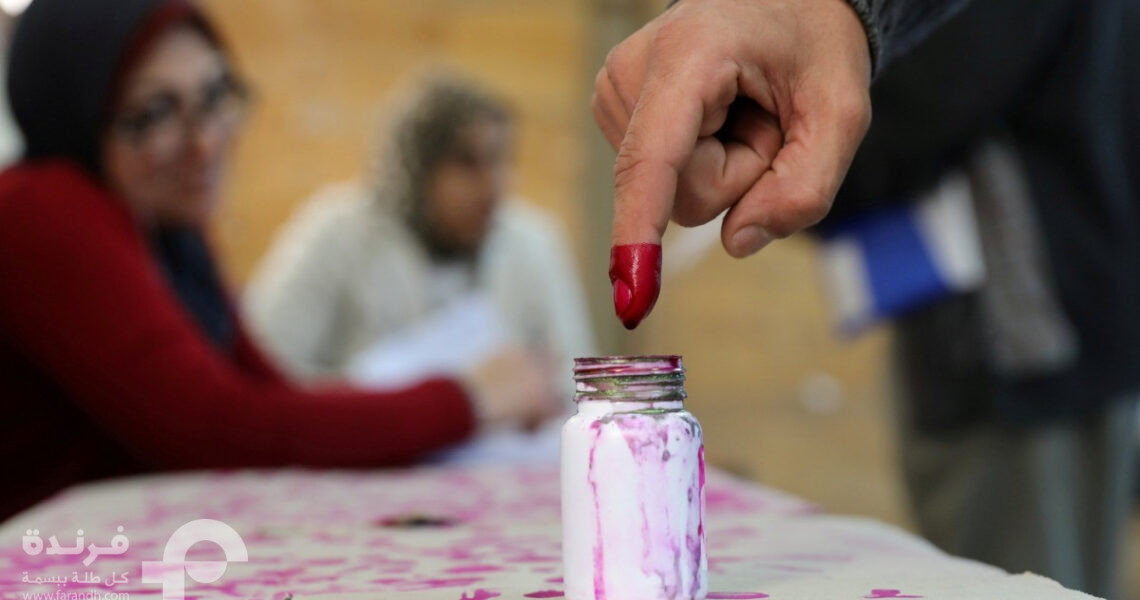The role of international organizations in supporting the presidential elections in Egypt
by Sahar Alshamy
The Egyptian Coalition issues its fourth report on the presidential elections “Trends of International Organizations in Addressing the Egyptian Presidential Elections”, during the period from 1 July to 5 October 2023
Today, Thursday 12/10/2023, the Egyptian Coalition for Human Rights and Development issued its fourth report “Trends of International Organizations in Addressing the Egyptian Presidential Elections“, presenting the vision of international organizations towards the presidential elections, at the level of Egypt, by monitoring everything they published during the period from July 1 to October 5, 2023, focusing on the most prominent issues that were focused on.
The report pointed out that there are several issues that have not been absent from the list of priorities of these organizations, which they have exploited for political intrigue often and trying to portray to the countries of the world that there are violations in Egypt.
Perhaps the most prominent focus of the organization is the national dialogue and the attempt to limit its agenda to political issues or make these issues occupy the largest area of them, as well as the issue of releasing political detainees, in violation of the activities of the Presidential Amnesty Committee,
which issued dozens of decisions to release thousands, besides the circumstances and negative repercussions on the Egyptian economy.
All of these prompted many international organizations to question every step implemented by the government International organizations also agreed to demand Western countries that prevent the armament of the Egyptian army, which contradicts the role of the army in protecting citizens and the country.
They also objected to the Law on Associations, arguing that the law gives the authorities broad powers to supervise the registration, activities, funding, and dissolution of non-governmental organizations, while the number of organizations that could not reconcile their situation according to the Law of Associations is only 10 organizations out of 50,000 associations and organizations.
The report also stressed, in the conclusion, that international organizations launched their work from the United States project, which is based on two main pillars:
capitalism represented by the free market economy, and liberalism represented by the prescription of Western democracy and the human rights system from the point of view of the West.
This project is subjected to many criticisms because of its tendentious fragmentation purposes targeting state entities and pushing for further fragmentation between states and a threat to their political independence and national unity, which allows Western countries, especially the United States of America, to the exclusivity in deciding international politics and dominating and fragmenting peoples under the pretext of enabling them to exercise their rights.
The danger in this trend lies not in drawing its features from the United States or adopting it from Western countries but in the adoption of this trend by international organizations and encapsulating it with legitimacy and international laws, which is a major shift in the concepts that prevailed in the previous stage of international relations before the Cold War.
The most important of which are the concepts of sovereignty, interference in internal affairs, and national unity, meaning that the concept of democracy and human rights and how to apply them has become a matter not internal but an international affair. Moreover, the International Organizations have added legitimacy and cover sufficient for international law to be removed from the right of states not to interfere in their internal affairs to the right to intervene.
The report also emphasized the view of International Organizations towards the Egyptian state, especially in the stage before the next presidential elections scheduled for December 2023.
The subjective reports that organizations have been issuing about Egypt since the 30 June revolution until today clearly confirm that these organizations lack methodology in writing their reports, as well as relying on undocumented information.
These organizations also proceed from the principle that Egypt has not and will not provide progress in the human rights file as long as it does not respond to our demands, considering that these demands are the lifeline for everything that is happening, although the Egyptian state is still trying to correct its approach in dealing with this thorny human rights file.
Egypt began with the launch of the National Strategy for Human Rights, in September 2021, and the designation of 2022 as the Year of Civil Society, as well as the launch of the national dialogue in May 2023.
So, they ignore that when Egypt takes into account what these organizations say about it in their reports and statements, this does not mean a permit to interfere in its internal affairs!!, and impose a list of requests on them.
Finally, the reports of these organizations often rely on organizations that strongly oppose the current regime, including the Muslim Brotherhood, forgetting all their terrorist acts and activities against civilian citizens.
The FDHRD Denounces Amr Waked’s statements about Egyptian women
فرندة – Farandh


